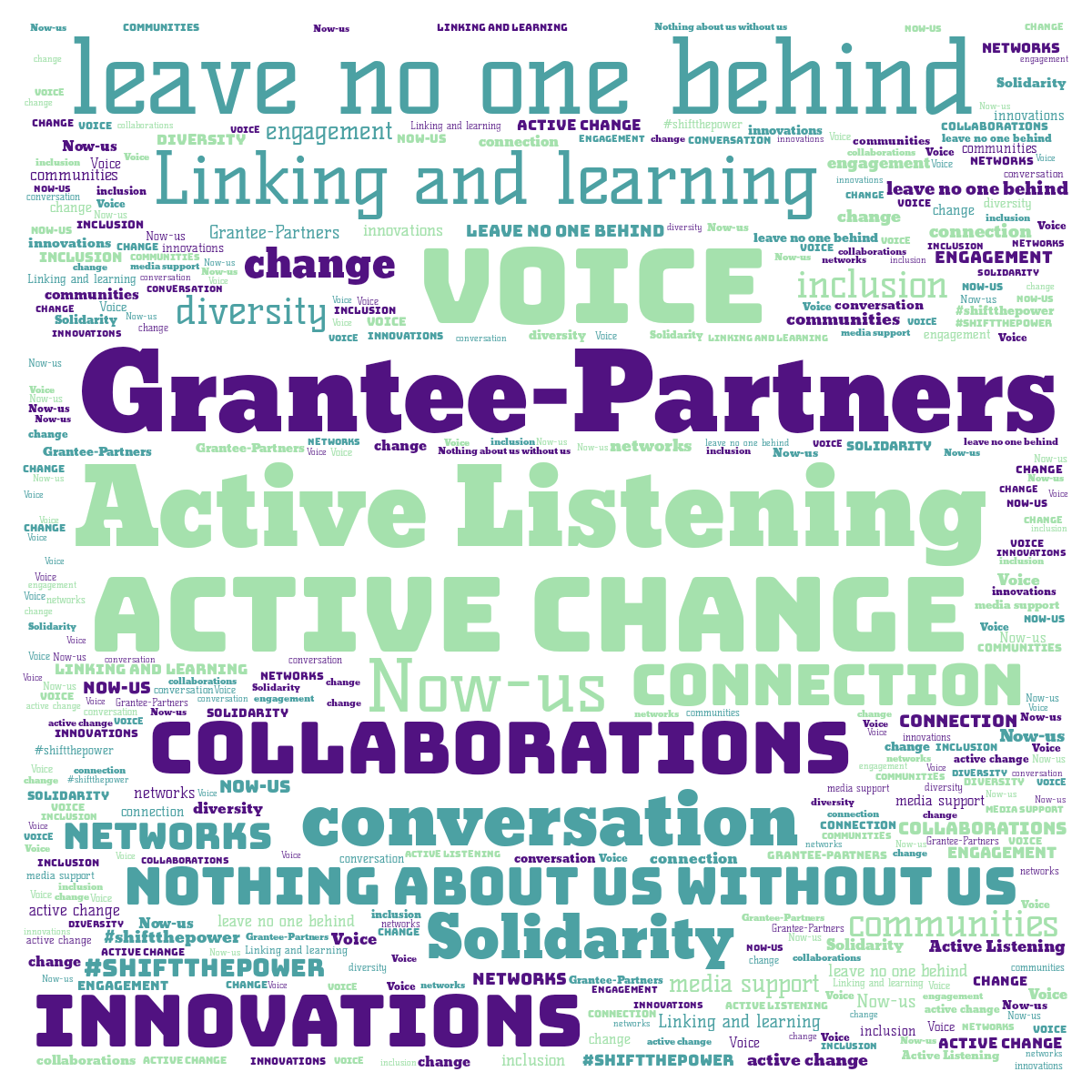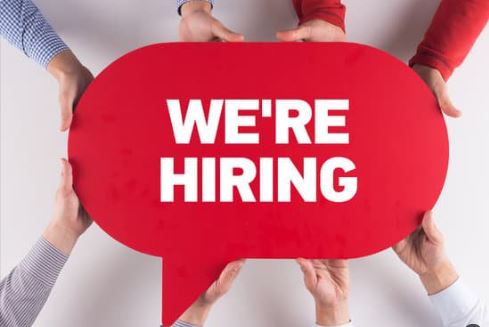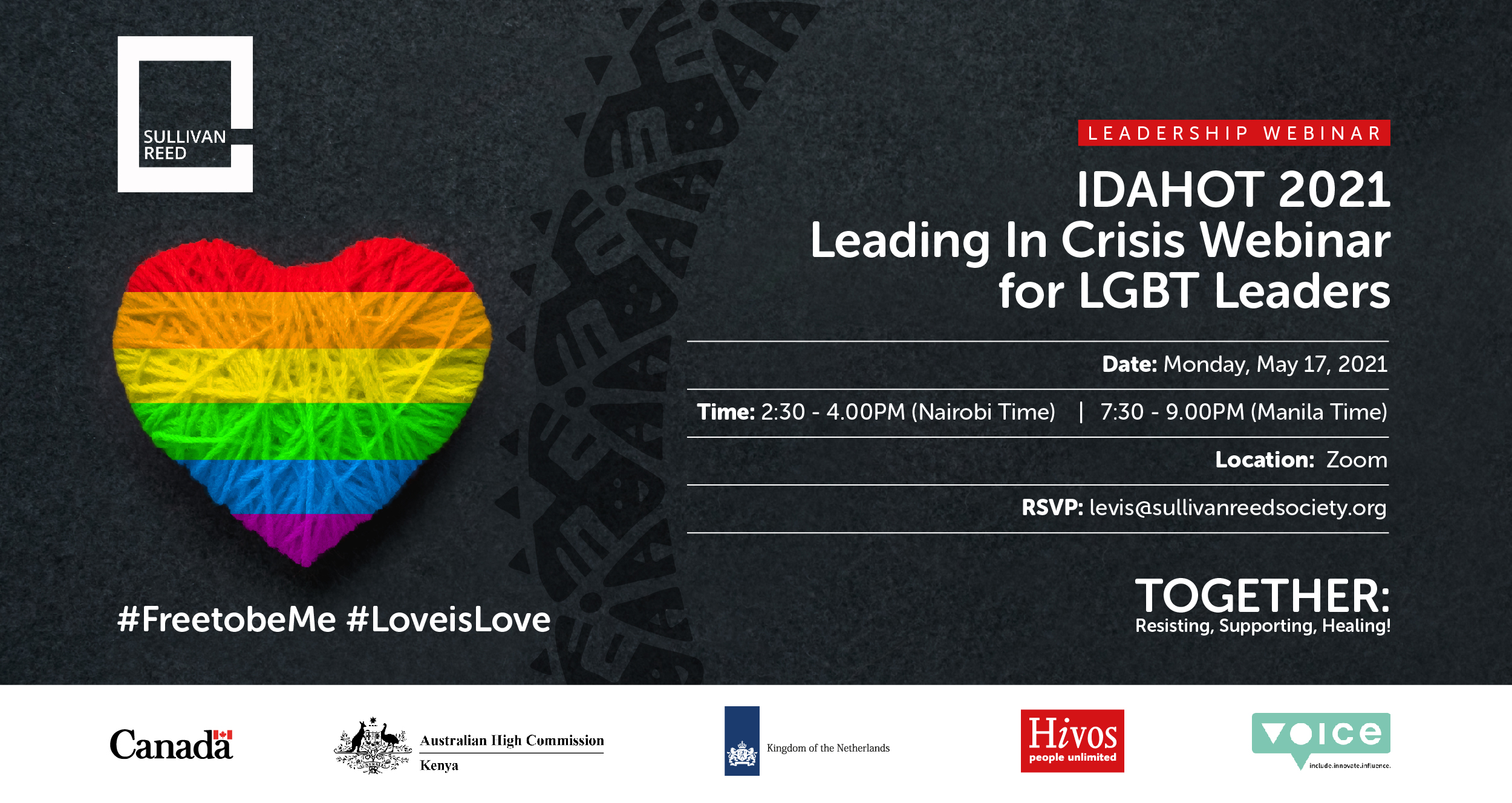Ca nous concerne tous, this concerns all of us!
Alassane Traore is the Executive Director of the Coalition Anti-Sida (CAS) in Mali, the key organisation fighting for the rights of and led by the LGBTI community in Mali. Alassane found himself in the Netherlands as one of the ten inclusive initiatives participating in the NOW-Us! Awards with a project titled Ca nous concerne tous or This concerns all of us!
After winning third price, Voice Programme Manager Marinke van Riet caught up with Alassane in the busy lobby of his hotel in The Hague to talk about his own journey, the journey of CAS, and his hopes and dreams for Mali. Below follows a summary of the transcript of the interview in English while the podcast is in French. This interview forms part of Voice Talks, our podcast channel.
Who is Alassane?
I am Alassane Traore, I am a gender queer, non-binary person from Mali who fights for the universal rights for all but especially the LGBTI community in Mali. An LGBTI community which is often marginalised, discriminated and excluded and left behind due to multiple factors.
Can you tell us about the work of the Coalition Anti-Sida (Anti-AIDS Coalition)?
We have set up the CAS coalition to fight for the rights of the LGBTI community in Mali. A community that often lives their life in hiding and who doesn’t have access to information about their own rights. Because of all our own personal and painful experiences which we have been living in and through, we felt the time was right to find our own way to support our own community and hence the birth of CAS. A place where we can be ourselves, be safe, find out about our identity, support victims of violence as well as help prevent it. In short a place where people can find answers to any question they may have. Also to get recognition and raise awareness among the pubic that we are not living our lives as a crime against the odds of a very hostile context whereby our people suffer daily.
Do you have information on how big the LGBTI community is? How many are you?
We have over 2000 members who benefit from our services of whom 150 are active. They are based in Bamako. Sevare, Mopti, Koulikoro and Mopti regions in Mali.
From the name CAS it is not clear that you stand for the rights of the LGBTI community. Why was that name chosen?
We have done that on purpose as we wanted to keep the name general to appeal to our broad membership-base. Our services evolve from year to year pending on what our members want so we wanted to make sure that the name is not too limiting. We are also an inclusive coalition trying to stand for the rights of all the letters Lesbians, Gay, Bisexual, Transgender, Intersex and Queer.
Since I got to know you in 2016 you have become a real champion for the rights of sexual minorities. Can you share with us -if you want- your own journey on how you got there?
My conviction and commitment stems mainly from the experiences in my own life. The first twenty years of my life I was victim of a lot of violence against me which raised a lot of questions and unfortunately no responses. It was only after twenty years that I found some answers about my own gender identity and expression and how this was related to the harassment while I was only trying to be myself. These difficulties emboldened my conviction to fight for the rights of all as I don’t find it normal that people have to live their lives in secret, are subject to violence and are deprived of their potential. I am also doing this to help future generations live their potential in an inclusive society where we can just be ourselves.
What is interesting to note is that in Mali there is no law against or for the protection of LGBTI, yet there is a lot of hostility. Yet, in other African countries, like in Uganda where there are voices to re-introduce the death penalty against the LGBTI community you have a a lot stronger and vibrant LGBTI community. Can you tell us about the context?
You are right that there is a legal vacuum in Mali but that doesn’t mean it isn’t very difficult. First of all the role of the Islam religion is very influential which also has an impact on the general mentality. Having a law can work for you or against you. In Mali there is culture, religion and mentality which all consider homosexuality a bad thing and these traits are already displayed at a very young age. Young people are surrounded with violence and don’t have access to services whether health, security or justice. Local human rights organisation don’t want to touch this subject because of this environment and because they would be excluded from partnerships and other local organisations. People are being chased from their neighborhoods when there are ‘gay’ suspicions which really leaves the community with very little options.
With whom does CAS work or partner?
We have been receiving support from several partners such as FrontLine Defenders and Embassies, but our key support finds itself in the health sector, providing access to health services. We have not yet been able to secure partners within the safety and security and justice domains which are critical for our community. After all even if you have good access to health, if you are not safe and secure this will not help. It is important for our people to first of all find peace within themselves but then secondly also be able to enjoy peace and security from the society around them.
As you know Oxfam in Mali has not yet supported the local LGBTI community as part of Voice. This may change, among others due to the development of a new Oxfam Global Strategy with stronger focus on inclusion. What are your hopes for and expectations of Oxfam?
It is true that we have not yet been supported by Voice through Oxfam in Mali but we have been engaging with Oxfam since the launch of Voice in 2016. We have been part of meetings and to provide inputs into the context analysis. We strongly need Oxfam’s involvement as together we can make change happen. We need Oxfam not only for our protection but also to stand together for non-violence and peace. And we would like their empathy and understanding, we are not asking for acceptance but just tolerance, understanding and empathy for who we are. We need local and international organisations to take a stand for non-violence against us, to form an alliance which can challenge laws, mentality and culture against all forms of discrimination and marginalisation, whether it is against us or people with a disability. Change may come from various corners but should be a united force. And we are also ready to offer our services and knowledge to help you understand the SDGIE issues better and develop joint strategies for engagement.
You talk a lot about empathy which also touches upon the core of the NOW-Us! Awards for which you came to the Netherlands. You won third prize totaling Euro 10,000 which is a great achievement. What are you going to do with this?
The amount will be exclusively used to strengthen our activities and membership along two lines. The first one will be for awareness-raising especially on personal safety and well-being for our members in the region. And secondly we will be co-creating some practical tools in local languages to help people be safer and more secure in their own environment. This is also reflected in the title of the project This concerns all of us.
During the NOW-Us! week you said something that touched not only me but also the 400+ audience at the Partos Innovation Festival where you pitched you project. Would you mind repeating your words?
My precise words were that I dream of the same freedoms and liberties that I am enjoying here today on this stage, where I can simply be free to be me. This freedom and liberty do not exist in Mali today where people have to hide. I want all people of our community and beyond to enjoy that freedom, unleash their potential and be who they are and want to be. That is what I am dreaming of and working towards.
Thank you Alassane, I dream with you and Voice stands with you. Thank you so much for taking the time to talk with me and safe journey back to Mali!







